Boer is Afrikaans for "farmer." Many of the Dutch settlers in South Africa were farmers, and many Boers still farm around the country. With some, it's more of a hobby than their main occupation, as in the case of our friends, whose farm we recently visited for a day.
Another difference between Boer and American farms is that the Afrikaners just say "farm" to mean either a "game farm" or an agricultural farm. When I picture a farm, I picture cultivated fields growing green stuff, with a barn and some cows, etc. But many farms here look like completely untouched land. That's because they are game farms, or perhaps what we would call a ranch. Our friends had a game farm.
I thought their farm was near to Louis Trichardt, the closest town to our village (a half hour away). Actually their farm bordered Zimbabwe! We drove to Musina, the border town, and then drove east for another hour, an almost 3-hour drive in total.
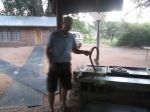 |
| Grilling wors in the outdoors. |
I later read the label on the vinegar bottle. It read, "Great for salads, pickling, and marinades." Unfortunately, it performed the middle description on my stomach. My stomach felt pickled all night. I finally drifted off to sleep in an air-conditioned room. (Back home "across the mountain," I'd been cuddling up under thick blankets to stave off the approaching winter cold.) Here near the border it was noticeably warmer.
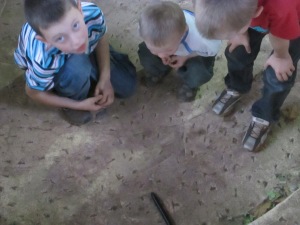
The following morning we ate a stout, homemade Boer breakfast and took a drive around the farm with our hosts. Their farm borders two major rivers in our province, the Nzhelele (which they confidently mispronounced with no pretensions at trying to pronounce it the African way--another humorous mark of the stereotypical Afrikaner--not so PC) and the Limpopo River, which our province is named for, and which delineates the border between South Africa and Zimbabwe and between South Africa and Mozambique.
"We're going to the dam first," they informed us. I'm picturing a governmentally-built affair and was shocked to hear that they built it! We affectionately coined an acronym for this Boer spirit--ACF: Afrikaner Confidence Factor. They have such a can-do "Make-a-Plan" (a common phrase) spirit that they will often give you tidbits of dogmatic advice or information that leave your head whirling with incredulity.
So we put our own protective filter on their unscreened confidence--the ACF. If they had told me on my hypothetical farm to just build my own dam, I would have laughed it off as extraordinary overconfidence. Yeah, right! Like you could build your own dam. But I saw it with my own eyes. And my son fell in it with his own feet. *glare* We were amazed and pleased to know such resourceful, able people. And if you express amazement, they will act like it's nothing. "It took about 1,000 bags of cement," they inform us.
Our friend took his rifle everywhere with him. He hoped to shoot a buck for meat to sell (they tell me they don't shoot the females here), as well as a large crocodile the workers had sighted several times sunning itself in front of a water pump. We didn't see any crocs, but I had trouble sleeping Tuesday night because of my imagination running away with me. Most of you know we have our own crocodile history with our teammate being attacked several years ago.
The homemade dam allows more water for their game; they had several varieties of deer--impala, nyala, kudu, eland--and giraffe. When the giraffe gets old (about 15 years old), it loses its teeth. When all the teeth are gone, it starves to death. So before that happens, the Boers, for about $1,500, give the pleasure of shooting game and having a stuffed giraffe's head on his study wall to a foreign hunter. This is the kind of elite hunting common in Europe. Americans should be thankful for their sportsmen culture and freedom to hunt, as we discovered recently when watching this documentary (free online for a limited time).
As we drove around the farm, I asked the Mrs. why her husband had mentioned the night before needing to make their presence known on the farm. She told me of two more real dangers than crocs that they regularly face.
- Poachers: the farm has many acres and little surveillance. When they tried to set up a camera to see what was happening, it was stolen. Poachers come in and kill the deer. Sometimes they find the animals tied with a wire around its neck to a tree, choked to death. Sometimes there is no sign. Animals are simply missing, decreasing in number.
- Smugglers: "Drugs?" I asked. Yes, drugs, but it's usually cigarettes, which are highly taxed here. If they can smuggle them across the border, the taxes are avoided; and they can get way more profit. Once they saw four vehicles full of men cutting across their property which they knew were either the poachers or smugglers, but they were only two people with one rifle between them, and so didn't attempt to stop them.
"Wasn't there a border patrol?" I wondered. They chuckled. No. There were occasional police watching the borders; but they can't be everywhere, and worse than that, they are so corrupt that they let anyone go with a bribe. The border patrol is no help to the Boers with Zimbabweans crossing the farm illegally, whether poachers, smugglers, or refugees.
This we did next ourselves! We had traversed the farm, noticing game (our friend tried to hunt a few, but didn't get any good shots), huge yellow and black spiders hanging in webs across the dirt-track road, and losing my son's shirt which Seth had placed on top of the truck to dry from his earlier accidental dip in the dam, finally arriving at the Limpopo River which forms the other border to their farm. We turned onto a track that followed the border fence.
There was a small strip of "no-man's land" between South Africa's mesh wire fence and Zimbabwe's. The Limpopo was just beyond the Zimbabwean fence. At first the border fence was a decent fence with barbed wire on top; but it quickly deteriorated as we drove, until we came to a place with no fence at all. Two gates, one in each country's fence, were both open with no pretense at all at keeping anything from passing between one and the other. This is where many people border-hop without needing the proper papers. We ourselves walked right through and visited the Limpopo River.
It was deserted, but our friend told us that on the weekends it is full of people fishing and...border-hopping. It was beautiful and a little bit thrilling to be able to visit such a historic landmark without needing to go through the happiness-destroying process of having passports stamped. We skipped rocks for a bit, snapped a picture, and headed back to the farm.
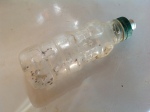 |
| The evidence! |
There are several disadvantages to being a missionary kid, Seth and I discussed on the way home, but there are certain pleasing advantages as well. I was glad for the children to see normal use of a firearm, the great rivers of our area, wild game, and gain a broader international knowledge of how our world works today, with some of the interesting challenges to running a farm on the border of South Africa and Zimbabwe.
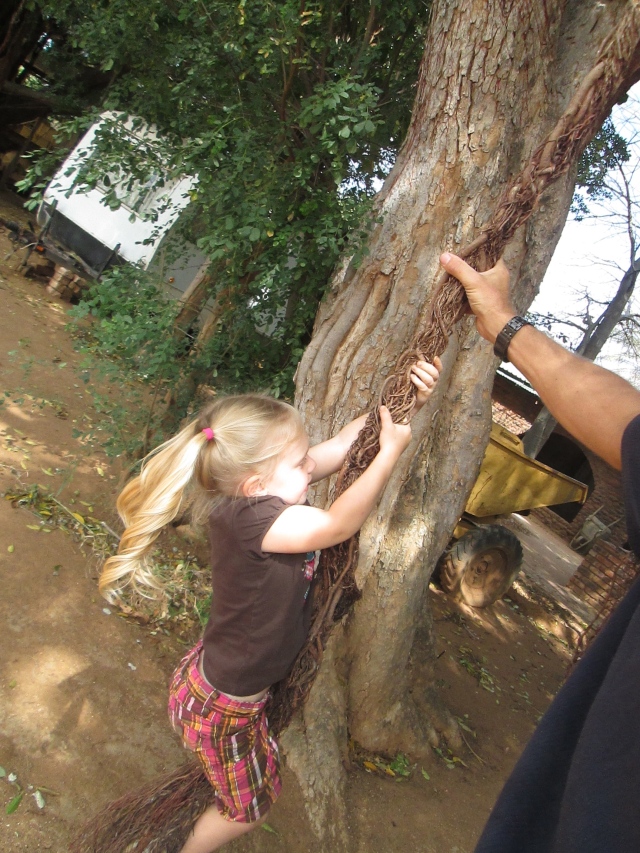

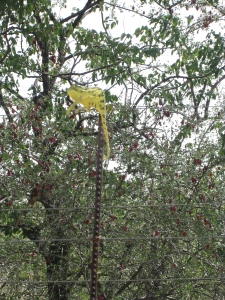
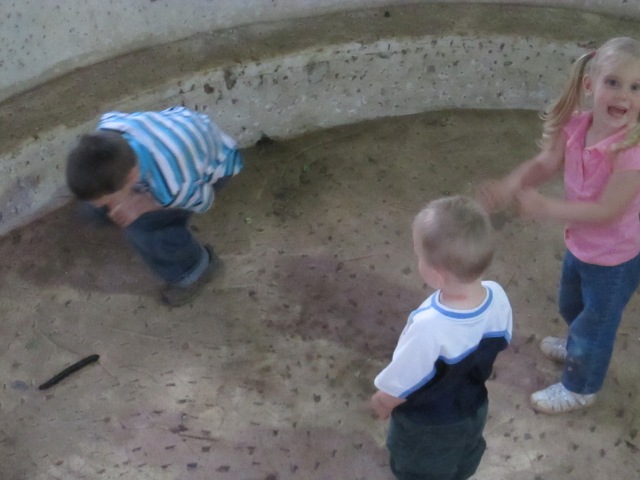
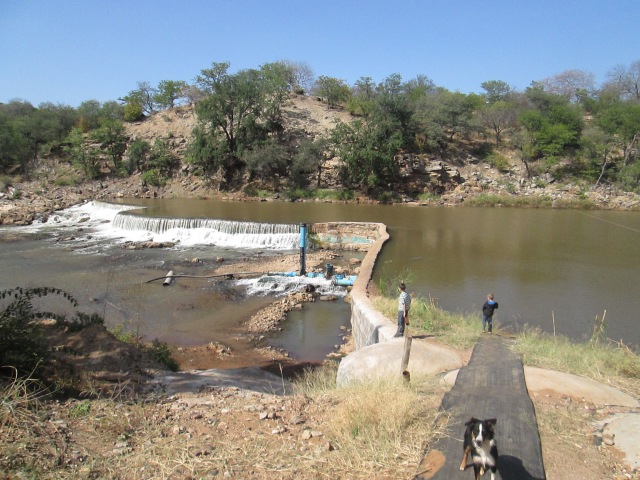
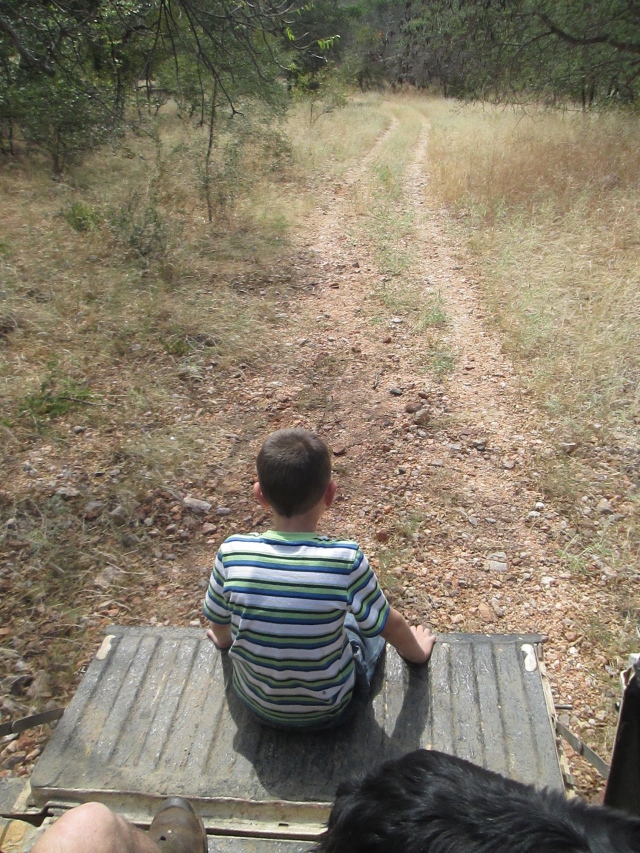
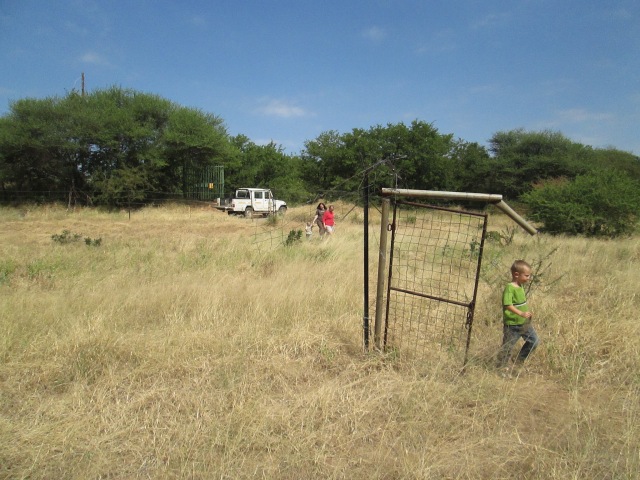
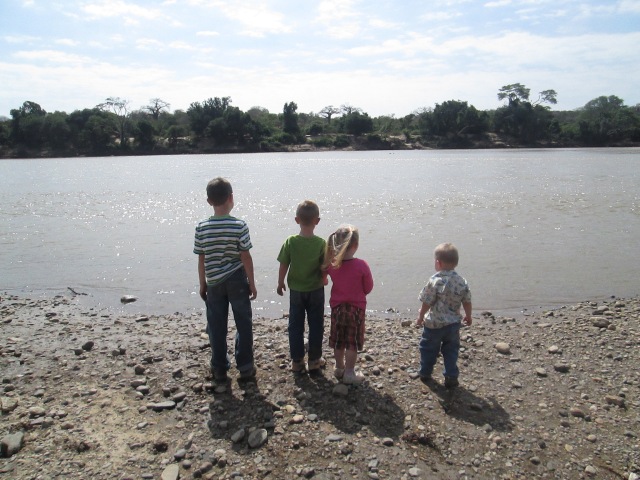
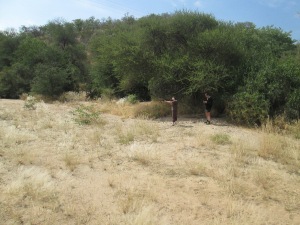
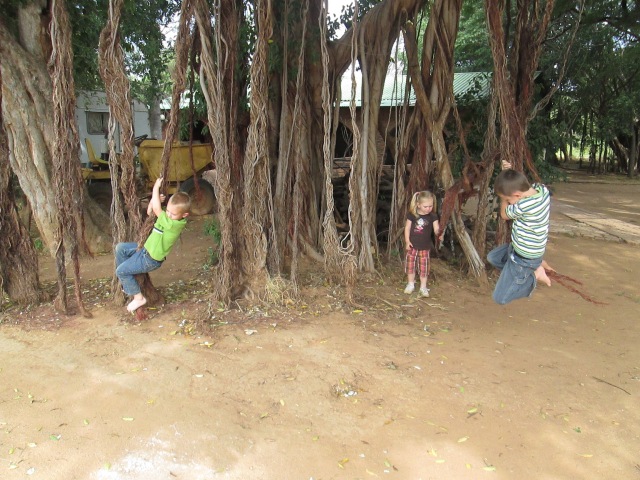

2 comments:
Terrific! I felt like I had a field trip, too! I totally agree that our kids get the best experiences!
A great report on part of life here in South Africa.
Post a Comment